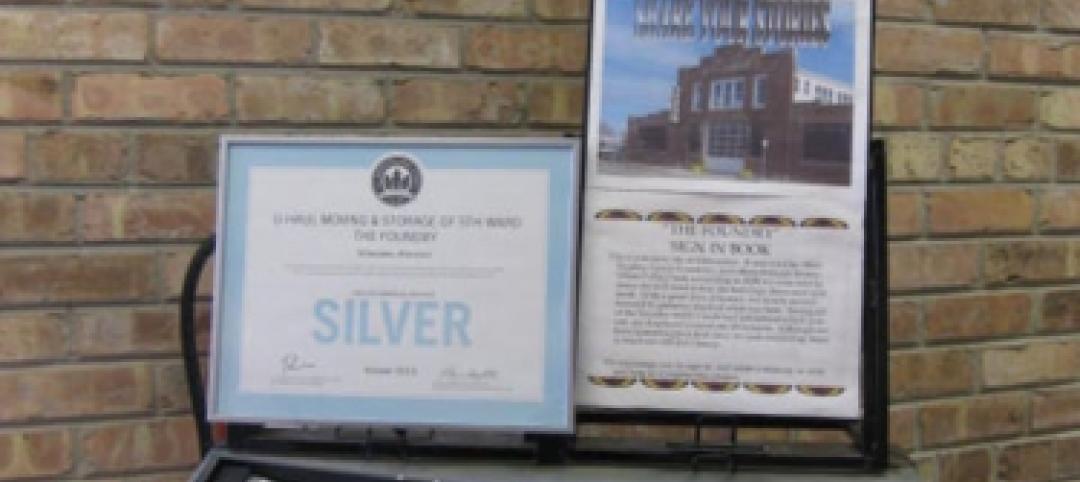Last month, Kraus-Anderson, the construction management and real estate development firm, announced that it had hired Nate Enger as Design Phase Services Manager to act as a go-between for the firm and its architect partners. Enger, an architect himself, has more than two decades of design collaborative expertise, most recently as a partner and vice president with ESG Architecture & Design. He also worked as a senior design architect with Ryan Companies. Enger and Chad Rempe, Kraus-Anderson’s other Design Phase Services Manager, spoke to BD+C via email about their roles. The following is an edited version of that conversation.
BD+C: In your capacity as design phase services manager, you will act as a liaison between Kraus-Anderson’s precon services and the architect-designers it works with on projects. How do you see the scope of your responsibilities?
Enger: We see this role as an opportunity to educate and align the team with holistic project goals, which include architecture, but also focus on finding ways for the full project team to innovate outside of the constraints of traditional project delivery methodology. My role will be to help catalyze collaboration during the formative phases of the project to realize value for our owners, and to help foster a culture of mutual project ownership among project teams.
Why did the firm feel the need to bring on a design-phase service manager at this time?
Rempe: Prior to hiring Nate, I've been the only Design Phase Services Manager within our Preconstruction Team. With Nate joining our team, we're doubling our capacity to better serve our clients and project teams in managing the design and preconstruction phase of a project. As a Design Phase Services Manager, Nate will [work with] our project architect/design partners to ensure project teams are aligned on the project goals and objectives, while also ensuring the right resources are engaged at the right time to deliver effective and efficient design.
Aside from Nate, does Kraus-Anderson have any other architects or designers in its employ?
Rempe: Kraus-Anderson does have two additional architects on staff. One works within our Preconstruction Team as a Building Science Manager, and another works as a Strategic Facility Planner.
Aligning designers with firm's project team
Nate, your resume includes stints with architecture and construction firms. How might that background color your perspective about projects and team collaboration?
Enger: I believe the key to successful partnerships is context. Working within both [architects and contractors] gives me unique insight into the objectives and values that drive the two sides of the industry. Knowing what defines success for each of these groups (among the many [factors] that contribute to the design and construction of projects) affords an opportunity to identify common ground and context on which to form a partnership of mutual respect, shared passion, and diversity of thought.
The opportunities and challenges we have as an industry will benefit from a true collaboration that harnesses these varied skillsets under a model that encourages knowledge sharing and innovation, in contrast to an approach of accepting partners as a necessity of the process.
We recently posted an article about a cancer center in California that's being designed and built under a Collaborative Project Delivery contract. Does your hire in any way signal what kinds of project contracts Kraus-Anderson favors, now and in the future?
Enger: I cannot speak specifically to contracts, as often we cannot control the type of contract vehicle that is executed. What I can say is that the intent we have through my hiring and many other exciting changes afoot here at Kraus-Anderson is to provide owners with more comprehensive project evaluation, earlier in the process, utilizing flexible team structures to solve challenges unique to each project. We plan to do this through identifying a shared set of values between ownership and the broad project team, breaking down traditional structures between disciplines that roadblock collaboration and innovation, and providing open, transparent, and timely access to project data as it is developed.
What are the first projects Nate will be working on?
Rempe: A few of the initial projects will be for KA's development team working through conceptual master planning efforts.
Related Stories
| Feb 26, 2012
Milwaukee U-Haul facility receives LEED-CI Silver
The new elements of the facility now include: efficient lighting with day-lighting controls and occupancy sensors, a high-efficiency HVAC system used in conjunction with a newly constructed thermal envelope to help reduce energy consumption, and the installation of low-flow fixtures to reduce water consumption.
| Feb 26, 2012
Hollister Construction awarded 42,000-sf office fit-out in Holtsville, N.Y.
Space leased by U.S. General Service Administration.
| Feb 26, 2012
Alvarez-Glasman & Colvin’s Chen LEED certified
Chen works closely with property owners to ensure that their properties meet and exceed all industry standards, and also provide long-term energy savings.
| Feb 24, 2012
ABI remains positive for three straight months
The AIA reported the January ABI score was 50.9, following a mark of 51.0 in December.
| Feb 24, 2012
Larry Lord joins HDR Architecture as south region science and technology director
A founding partner at Lord, Aeck & Sargent, Lord is nationally renowned for his leadership in architecture for complex projects.
| Feb 24, 2012
Pottorff elevated to principal at Ricci Greene Associates
Pottorff is recognized in the justice field as an expert solely dedicated to the design and planning of courts and urban jails in both the U.S. and Canada.
| Feb 24, 2012
Skanska hires Tingle as senior VP and national director for its Sports Center of Excellence
Tingle has worked in the architecture and construction industries for more than 30 years, and for the last 23 years, he has focused primarily on large-scale sports construction projects
| Feb 23, 2012
Federal budget cuts put major building projects on hold
A plan to build the National Bio and Agro-Defense Facility in Kansas is among several major building projects in jeopardy after the Obama administration’s 2013 budget was unveiled. The budget would cut all construction spending for the facility.
















